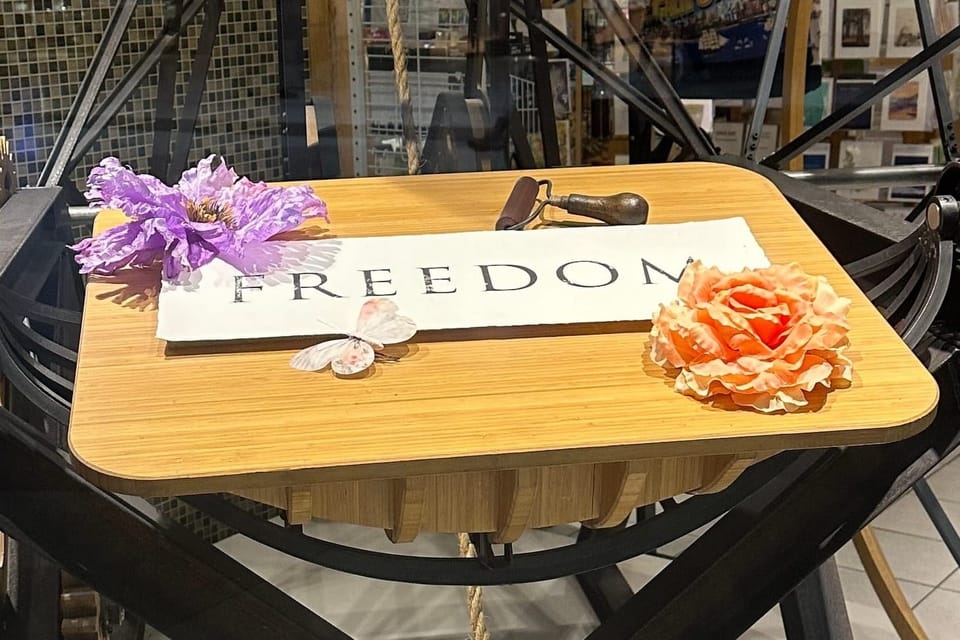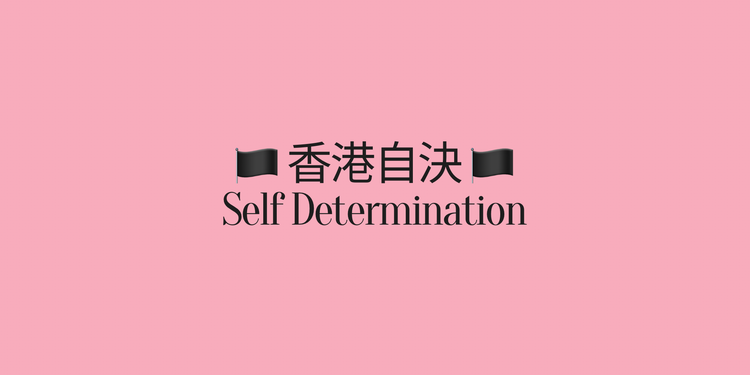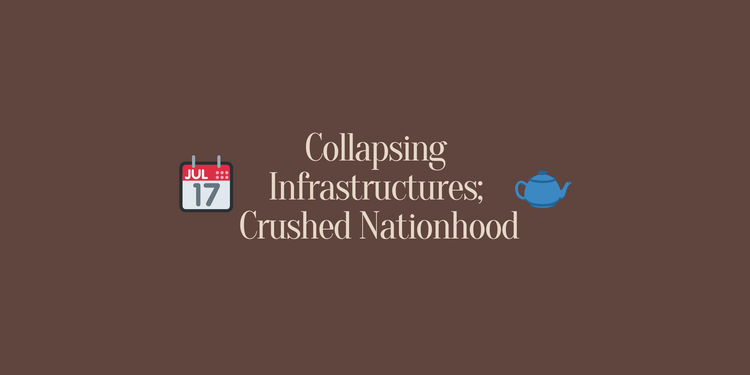✍🏼 What does freedom mean to you? 💭

💬 introspection on what l've learned from HK & political musing about non-political things
I was a curious child, always asked questions that annoyed adults in my life. One of the recurring questions I had - especially after attending the July 1st protest 2003, in opposition to the now-implemented Article 23: "What will happen to Hong Kong after 2047?"
The response has always been the same: "50 years unchanged, that's not a problem for my generation, you better figure it out"
Aside from the previous generation's arrogant focus on capitalistic gains from the mainland market, the old generation of pro-democracy activists (not only old in age) lack radical intentions in their political thoughts for Hong Kong's future. The dominant discourse is reliant on the idea that Hong Kong maintains its "special administrative status" (aka HKSAR) but remain in the control of Beijing.
Hongkongers tried again and again to demonstrate our persistent call for democratic developments, on the streets, in ballot boxes, and in public discourse for decades.
HKSAR responded to peaceful protests with violent suppressions. Despite popular support for Hong Kong's 5 Demands, HKSAR dismissed the people's call for universal suffrage. Since legalizing political repression by the National Security Law in July 2020, HKSAR has jailed almost every pro-democracy public figure. A seemingly endless supply of tear gas, pepper spray, rubber bullets, and water cannon were mobilized at the hands of police officers. In the name of "security" and "restore order," the police engaged systemically in violent beatings, torture, and sexual abuse. Violent abuses follow Hongkongers into jail cells and mental health institutions.
👧🏻 my personal belief: There is no justice for those suffering and victimized by HKSAR's oppressive governance. Not until we eradicate the entirety of HKSAR.
The radical idea of 攬炒 (pronounced laam chaau) was the vanguard ideology originated from 2019. In the simplest explanation: mutually assured destruction. The material manifestation was observed in peaceful civil disobedience and BlackBloc action campaigns:
- To "punish" stores by bringing huge crowds of customers, as many pro-democracy biz also provides community aid from their profit
- To "decorate" stores (including franchise corporations) that have pro-Beijing ties and support police officers - if corporations were to gain profits from pro-Beijing ties, then it will cost them financial damages
- To initiate a general strike, blocking up public transit systems, Lennon Walls art displays, hosting demonstrations across all major districts, peaceful public occupations - to disrupt the society's routine & economic systems To defend peaceful civilians, including taking physical means to resist against cops everyday peaceful folks will be brutalized by cops, why not fight back?"
Looking back at the 2019/20 protest movement, my political ideologies shifted radically
TLDR version:
There is no fixing a system when its oppressive nature is functioning-as-intended.
The United Kingdom and the People's Republic of China had never considered Hong Kong as deserving of civic rights. Handing over the city under PRC control enables HKSAR to serve as a point of connection to advance economic developments between the West & mainland Chinese markets. Long before I was born, Hong Kong's civic future was pre-determined by Eastern and Western imperial ruling classes, sealed by an international agreement that denied its people from fundamental rights to civic rights and democratic participation.
What about Hong Kong's future?
Hongkongers to be sovereign for Hong Kong and our collective future.
Self-determination is not a radical idea, but yet a radical change from what generations of Hongkongers were assigned and had ever known. I envisioned a radically different reality, Hong Kong as a diverse and equitable society.
I dislike the use of "nation-building", but fundamentally Hongkongers must seek to discuss how we refine our political philosophy and develop proposals for what Hong Kong looks like without HKSAR and CCP. My personal beliefs don't matter as much as the core principle that every Hongkonger must be provided a choice to muse about Hong Kong's sovereignty and governance.
The fundamental principle has always been to ensure every resident can vote and participate in civic processes without interference. Operating under an assumption that majority of Hongkongers agree, I am not going to issue an insincere generic statement about a future with freedom & democracy (like ewwww no
So what next?
Demand practical and material discussions about Hong Kong's political future. We must rebuild a society that overcomes the oppressive systems and practices that enabled inequalities in the city, and this is not only about pro-CCP elements deeply embedded into civil society. We need to reimagine a future that's restorative and resilient from existing oppressive systems.
I imagine an equitable society will rise from the ashes of HKSAR:
- Foreign domestic labourers - many practically raised the city's middle-upper class children - ensure paid fairly, treated with respect, & right to gain residency if they wish so.
- Hongkongers racialized by Han supremacy are meaningfully engaged as an integral part of this ethnically and culturally diverse city.
- Bourgeoisie & foreign investments pay their fair share of taxes to equalize wealth inequalities
- Tackle patriarchy, misogyny and queerphobia attached to cultural norms, address the intergenerational gendered exploitation and violence that disproportionately affect women, girls, non-b & femmes.
- Preserve, restore, and maintain the city's cultural heritage: neon signs, architecture, art/ artisan, villages, traditions & celebrations.
- End conversion therapy & queerophobic practices, making queer-informed healthcare accessible & affordable.
- Transition to become ecologically informed & self-sustaining city, to co-exist with the city's natural environment & wildlife.
- Implement guarantee livable wages & quality housing for residents, end exploitative labour & property-hoarding induced housing crisis.
- Dedicate permanent funding for Hong Kong's local independent media outlets and news broadcasting programs in diverse languages.
- Publicly funded education system, with a strong curriculum on civic rights, critical thinking, media & digital literacy, history & social responsibilities



Comments ()